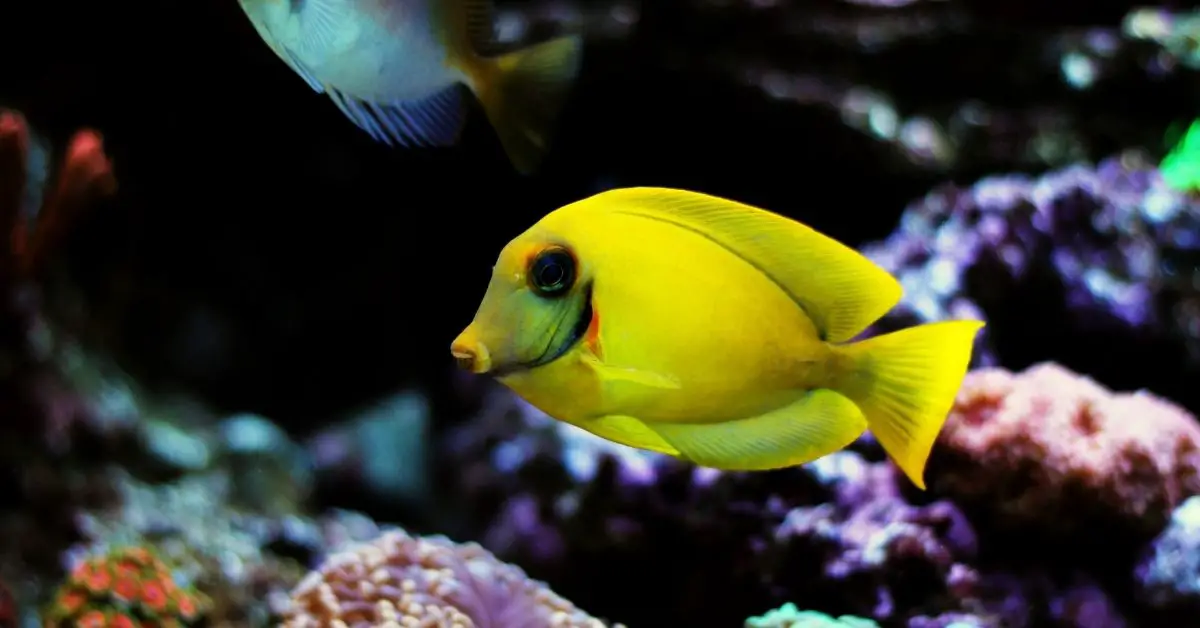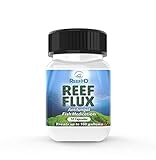The Lemon Peel Angelfish is easy to recognize and easily considered one of the most beautiful fish in the sea. These bright yellow beauties are a species of ray-finned fish that belong to the Pomacanthidae family. They are dwarf fish that are easy to spot because of their bright lemon yellow color. While they may be beautiful in the eyes, these dwarf fish are extremely aggressive.
Since Lemon Peel Angelfish are known to be aggressive nippers, they are not considered to be reef safe at all. Actually, when it comes to Lemon Peel Angelfish many will recommend that they are the last choice of fish you should add to an aquarium. Keep reading to learn more about why Lemon Peel Angelfish aren’t reef safe.
Is Peel Angelfish Reef Safe?
Lemon Peel Angelfish are often considered a threat because they are one of the most aggressive types of dwarf fish in existence. Once they have established an area as their territory they will start a quarrel with other dwarf fish or even fish that are similar in color and shape. They can easily take down Butterflyfish, which are twice their size.
Another reason that Lemon Peel Angelfish are not considered reef safe is that they are known for their nip.
Instant Ocean Reef Crystals Reef Salt For 160 Gallons, Enriched Formulation For Aquariums
$66.79 (as of November 13, 2025 01:21 GMT +02:00 - More infoProduct prices and availability are accurate as of the date/time indicated and are subject to change. Any price and availability information displayed on [relevant Amazon Site(s), as applicable] at the time of purchase will apply to the purchase of this product.)Seachem Reef Glue Cyanoacrylate Gel Coral Frag Mounting, 20g (001167)
$9.99 (as of February 8, 2026 03:10 GMT +02:00 - More infoProduct prices and availability are accurate as of the date/time indicated and are subject to change. Any price and availability information displayed on [relevant Amazon Site(s), as applicable] at the time of purchase will apply to the purchase of this product.)ReefHD Reef Flux Anti-Fungal Treatment (100 gal)
They can do all sorts of damage to your reef tank by nipping at:
- Soft corals
- Large polyp stony corals
- Zoanthids
- Clam mantle
The reef is set up to create a safe space for the creatures in an aquarium. Everything living in the reef is peaceful and friendly, letting every creature live without fear and disruptions. When an aggressor gets mixed into their environment it shakes up their peaceful lifestyle and could cause some fish to flee.
Can Lemon Peel Angelfish Live With Other Fish?
The main reason that a Lemon Peel Angelfish isn’t considered reef safe is because of how aggressive they are. This is why it’s best to let them live in solidarity. Even the presence of another angelfish will upset them and put them in an aggressive state. Sometimes people can allow a male and female to live together in a tank, but the tank needs to be of larger space.
It’s never a good idea to allow two male Lemon Peel Angelfish to live in the same tank together because they are known to fight to the death. Actually, since they are known to pick and nip, most experienced fish hobbyists won’t trust these fish around other fish or creatures.
Why Is It A Bad Idea To Add Lemon Peel Angelfish To Reef?
Some people are under the impression that it’s okay to allow their Lemon Peel Angelfish in their reef tank, this is because when they are young they will leave the corals alone. These fish actually don’t start becoming aggressive until they get older. If you do have a Lemon Peel Angelfish in your reef tank then it will likely make a feast of your coral once they become an adult.
The invertebrates that they enjoy nipping on all live among the reef peacefully. While the Lemon Peel Angelfish may leave them alone at first if it’s well-fed, that’s likely to change at any given point once they are an adult. Even if these fish have no intentions of eating the smaller creatures, they will still pick on them. You will want to keep these fish away from non-aggressive tank mates.
Ideal Lemon Peel Angelfish Habitat
If you have one solo Lemon Peel Angelfish (which is recommended) then you should stick to a tank that is at least 30 gallons. However, if you decide to have more than one, the tank should be no less than 55 gallons. While most Lemon Peel Angelfish will live well in a reef setting, it’s not recommended because they will eat away at the structure.
Instead, a better setting for these fish are rock shelters. A rock shelter gives the Lemon Peel Angelfish a place to explore and hide but will stay intact because they won’t be tempted to nip at it. Some people will add decorations to the tank to provide them with more places to explore, such as bridges or faux reefs.
Lemon Peel Angelfish are nippers, but it’s not only to do with aggression. Another reason these fish are constantly nipping is that they are grazers, which means they are consistently snacking. A Lemon Peel Angelfish may eat up to a dozen times a day. This means that there will be more waste in their tank than what other fish may produce.
Ideally, the pH level of the water should be at least 8.0. Since they have more waste, you will need to monitor the water quality in the tank so they don’t get sick. Their tanks will require a partial water change every other week, replacing 10 to 15 % of the water. One thing to keep in mind is that larger tanks over 100 gallons should have 20% replaced.
What Do Lemon Peel Angelfish Eat?
Lemon Peel Angelfish are omnivores, but they mostly feed on the algae that grow on rocks. This is why they should be living in a tank with rocks instead of a reef setting. While there are tank-fed foods that are suitable for a Lemon Peel Angelfish’s diet, many of them don’t like it.
They often won’t eat tank-fed food, so this is why it’s important to have a good amount of rocks to encourage the healthy growth of macroalgae. The algae will provide them with the nutrients they need until they require until they are more accustomed to eating the tank-fed food.
Final Thoughts: Are Lemon Peel Angelfish Reef Safe?
Lemon Peel Angelfish aren’t considered reef safe because they are known for nipping at the creatures who live among the reef as well as feasting on the reef itself. Actually, rocks are a much better choice for a Lemon Peel Angelfish tank because they provide algae for the fish to eat.












1 thought on “Are Lemon Peel Angelfish Reef Safe?”
Comments are closed.